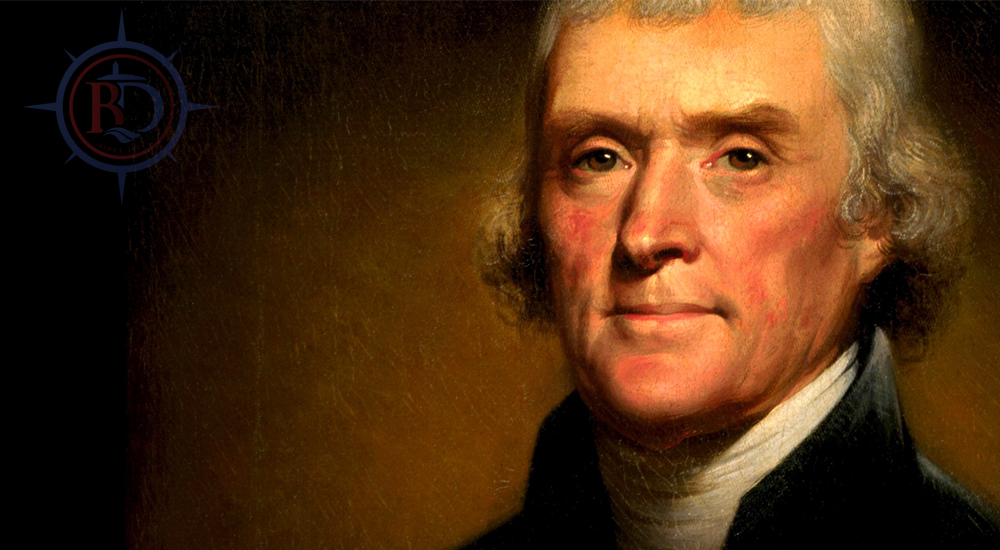Thomas Jefferson Institute for Public Policy Hosts Economic Forum at GMU
Whichever candidate one may support in the 2017 race for Governor, the data is clear. Vote Republican.
I had the opportunity to attend the Thomas Jefferson Institute for Public Policy’s “Second Annual Conference on Virginia’s Economic Future” session at my alma mater, George Mason University on September 14th. Hosted by former Congressman Tom Davis and Jefferson Institute President Mike Thompson, this panel discussion featured a talented, articulate and diverse cast of economists and financial experts. This highly informative event covered economic data at the Federal, State and local levels, as well as an excellent investment presentation by Steve Cassaday. While the panelists nearly all joked that they were members of the “glass half full club” the data they presented failed to enlist me as a member of that group. It does not take an economist to see the damage Federal and State tax and regulatory policies have done to our economy, or worry about a potential downturn to come.
The conference included a powerful lineup of speakers, including Dr. J. D. Foster, Incoming Chief Economist of the U.S. Chamber of Commerce, Dr. Chad Moutray, Chief Economist of the National Association of Manufacturers, Dr. Fletcher Mangum, President of Mangum Economics in Richmond, VA, Keith Martin, Vice President of the Virginia Chamber of Commerce, Brett Vassey, President of the Virginia Manufacturers’ Association, Nicole Riley, State Director of the Virginia National Federation of Independent Business (NFIB), Dr. Terry Clower, Director of George Mason University’s Center for Regional Analysis, and Stephan Cassaday, President of Cassaday & Company.
There were many, many charts and graphs (take a look here) but my main takeaway was this – President Obama’s “audacious regulatory agenda” (his words) and Governor McAuliffe’s failure to fight it with counter-balancing pro-business initiatives in Virginia, have hurt business growth and placed Virginia in a precarious position both generally and vis-à-vis neighboring states.
While Mr. Cassaday wisely advised us all to “stay invested” even in the face of the current political uncertainty, the economists and analysts on the panel presented a nearly unanimously bad picture of the federal, state and local economies – especially when looking forward. Any good numbers were offset by underlying bad ones, and try as they might to be optimistic, they weren’t.
A few cherry-picked examples of what I heard:
• Federal economic growth is “uneven and weak to fragile” and has actually slowed to 1% GDP growth over the last 6 months.
• Gross Domestic Income (GDI) is even worse, growing at .5%, which indicates a lowering of our economic future growth potential for GDP.
• Business investment has contracted for three consecutive quarters, from an already low level, and the rate of contraction is increasing.
• Manufacturing production growth, a key indicator, is running at .4% annually, “charitably characterized as sluggish” – pulled down by the energy sector, declining commodity prices and a strong dollar. (Consumer goods like automobiles, housing furnishings, etc. are doing well, however, actually hiding the weakness in other sectors).
• 39,000 workers have lost jobs in the manufacturing sector this year, despite record job postings, indicating both a skills gap and an over-priced labor market versus hiring organization expectations of employee capability.
• In Virginia, labor force participation continues to decline and employment growth is decelerating faster than the national level across all sectors of the economy, with Virginia manufacturing showing significant declines.
• Virginia, having once held top spots in business rankings, has now slipped significantly across the board in those rankings. For example, Forbes ranked Virginia #1 or #2 in business climate between 2006 and 2013, but we are now #7 and CNBC held Virginia at #1 or #2 from 2006 through 2011 and we are now tied for 13th. CNBC ranks Virginia’s overall economy at #30.
• The MSA Leading Economic Index is on a declining trend, after the recession “snap back,” as is the prediction for the Greater Washington Metropolitan Area Gross Regional Product (GRP) hitting a declining trend in 2017 (again, after the post-recession “snap back”).
• The post Sequester recovery in Northern Virginia in the aggregate looks good, but there has been a “significant rebalancing towards lower wage jobs.”
• While regional job growth is strong at 3% (again, perhaps due to “snap back”) it has not recovered in the key sectors of construction, manufacturing, information and wholesale trade.
• Regional employment growth is driven by strong retail and hospitality sectors, which bring volume but significantly lower wages.
• Virginia’s local government employment numbers are also declining year-to-year, exposing budget pressures caused by state and federal spending.
• Many regulations (for example new healthcare regulations, new overtime rules, and the “Waters of the United States” environmental regulations) have not even been felt yet, causing concern about more tough times to come for small business.
As to the question of why this is happening, one of the panelists put it best, “the Feds have been pouring regulations over us” while Virginia has done nothing about it, “remaining static.” As surrounding states pass tax and regulatory relief to fight off the onslaught by the Obama Administration, our Governor has stayed true to his allegiances and done nothing to counter it. CEO Magazine, for example, ranks Virginia #39 in overall tax and regulatory climate.
What is pretty obvious from the charts is that Virginia was doing pretty well, out-performing the national numbers, during and immediately after the recession, but then started to slip below national levels in all the key indicators right about the time that Governor McAuliffe’s economic program started to hit. So despite investments in infrastructure and roads, and despite all the nifty press releases about bringing businesses to Virginia, we are facing a declining economic situation both in the Commonwealth and in the region. Our tax rates and regulatory burdens are becoming non-competitive, we have a $1B+ budget shortfall, local governments are taking a beating due to national and state trends, and our employment numbers, once running above the national norm, have begun to slip below the national averages across key sectors and are “re-balancing” towards lower wage sectors.
It is difficult to sit through the excellent presentations given at this forum and not come away with a pessimistic view of Virginia’s economic situation. It very well may be that the glass is, actually, half empty. Putting Virginia on the right track economically will clearly be a huge issue during the Governor’s race next year. And based on what I saw, it ought to be.
The Jefferson Policy Institute did us all a great service in featuring top economists to help us understand the numbers and trends. Based on what I heard I am bolstered in my advocacy for an administration in Richmond dedicated to tax and regulatory relief. I hope the rest of Commonwealth pays attention.


